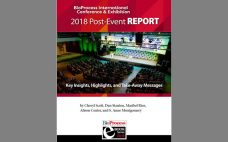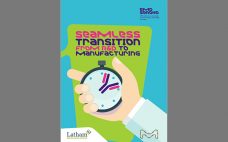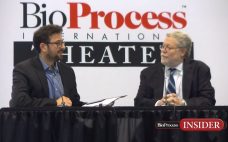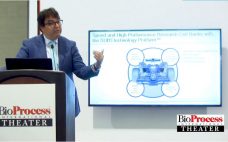Veterans of the US military still struggle to access healthcare despite the 2014 congressional passing of the Veteran’s Choice Program (VCP), a US$10 billion-dollar “fix” that allows qualifying veterans to see community physicians who have contracted with the Department of Veterans Affairs (VA) to provide care. Veterans who enrolled in VCP to avoid long wait times at department medical facilities still have faced month-long delays before seeing a doctor, according to a 2018 GAO report. Investigators have found that the…
Economics
Partnerships in Immunotherapy: Working Together to Take Cancer Treatment to the Next Level
Biopharmaceuticals are a particularly complex expression of medicine — and immunotherapies perhaps even more so. As treatments, these products themselves often also need “partners” of a kind: e.g., radiation/radiotherapies, traditional MAbs, and chemotherapies. Just as this field of endeavor requires the input and expertise of many different disciplines — from medical researchers to process engineers, clinicians to business leaders, and market experts to policy makers — this discussion of the topic of partnerships in immunotherapy brings together different experts in…
BioProcess International Conference and Exhibition 2018 Postevent Report: Key Insights, Highlights, and Take-Away Messages
From the global shift in demographics to increased efficiencies in chromatography media, change is constant within the bioprocessing industry and a major reason delegates flock to the annual BPI Conference and Exhibition. As a place to get an overview of the hot topics affecting this industry, the meeting brings together key aspects of bioprocessing — therapeutic modalities, cells, expression systems, upstream production, downstream processing, development, and manufacturing — with digital integration and the increasing importance of analytics. Add in macrobusiness…
Proposing a Systematic QbD Approach Toward Validated Guidelines for CMO RFI and RFP Processes: Biopharmaceutical Vendor Evaluation and Selection Minimum Standards (BioVesel)
Three major concerns predominate biotechnology executive management in organizations of all sizes and above all other risks: finance (or its absence at critical moments), technological performance, and failures in coordination. Some business functions, such as human resources (HR), are effectively siloed horizontally and therein are more likely to be susceptible to only one of those risks (1). Few functions are subject to this trinity of risks simultaneously; all functions may be exposed to failures in internal coordination, and a smaller…
Worldwide Biopharmaceutical Manufacturing Capacity Analysis: Growth Continues Across the Board
While the growth in biopharmaceutical manufacturing capacity in developed, major market countries is continuing its slow and steady climb, developing regions often are seeing double that growth rate. Over the past eight years, as detailed in the “About the Data” box, our company’s index of the top 1,000 biomanufacturing facilities (1) has tracked and ranked bioprocessing facilities worldwide in terms of known or estimated bioprocessing capacity (cumulative onsite bioreactor volume) number of biological products manufactured at clinical scale commercial scale…
Seamless Transition from R&D to Manufacturing
Fast and cheap: These criteria are becoming ever more urgent drivers for manufacturers of biologics, faced with increased scrutiny on the costs of developing novel drugs, the lengthy timelines for delivering these drugs to patients, and the tightening competition to capitalize on new targets. The challenge for manufacturers is further heightened by the expectations to deliver on quality as well. Although development and production of molecules such as monoclonal antibodies (MAbs) have greatly benefited from the “platformization” of core technologies…
BioProcess Insider BPI Theater @ BIO 2018 Interviews – Tuesday
BioProcess Insider brings the news as it breaks. At the BPI Theater @BIO, editor Dan Stanton conducted a series of interviews live on stage to report on the latest movements in the biomanufacturing industry to start each busy day of dealmaking in Boston. Below we summarize his DAY ONE conversations with a number of biopharmaceutical executives on Tuesday 5 June 2018. You can watch the full interviews online at www.bioprocessintl.com/BIO-Theater-2018. Andy Topping, Chief Scientific Officer, Fujifilm Diosynth Biotechnologies Gene therapies show…
Therapeutic Modalities: Business and Manufacturing Strategies Influencing Decisions to Develop One Therapy Type Rather Than Another
Moderator Patricia Seymour, with John Lee, Michael Kaufman, Jennifer Michaelson, and Weichang Zhou Following introductions of the panelists and their companies’ technologies, moderator Patricia Seymour began the discussion about challenges related to choosing different modalities and addressing related manufacturing concerns. Targeting Modalities Michaelson began by describing how Cullinan Oncology selects its targets and modalities, how it approaches those early phase decisions, and what its primary driver is to get into the clinic as quickly as possible. She talked about challenges…
Speed Matters: Gene to GMP in Nine Months
Igor Fisch, chief executive officer, Selexis, SA Fisch first posed this question: “How can we accelerate the number of drugs going into the clinics?” Speed matters because the faster a drug can get into clinical testing, the faster it can make it to market. He discussed both Selexis and KBI Biopharma and their collaboration, which started in 2012 when KBI developed a heterodimer purification process. JSR acquired both companies with an interest in entering the life sciences business. Selexis has…
It’s All About Speed: Getting to Early Development Clinical Trials Quickly
David J. Kenyon, senior director of global scientific and technical affairs, Patheon (Thermo Fisher Scientific) Kenyon has over 25 years of experience in the pharmaceutical/biotechnology and vaccine industries. He began his career with Johnson and Johnson, where he managed the production of the first monoclonal antibody (MAb) approved for human therapy. He joined Patheon in 2014. Kenyon received his PhD from the Rutgers School of Medicine and Dentistry of New Jersey. Patheon is now part of Thermo Fisher Scientific. Thermo…









